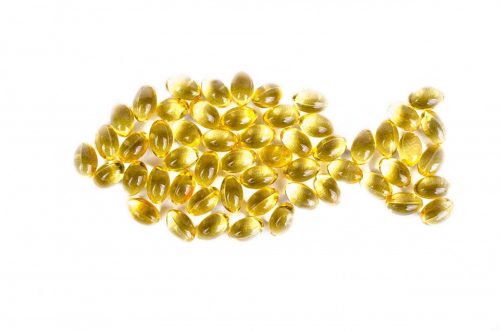 Omega-3s from fish pack a stronger punch than flaxseed and other oils when it comes to cancer prevention, according to a first-ever University of Guelph study.
Omega-3s from fish pack a stronger punch than flaxseed and other oils when it comes to cancer prevention, according to a first-ever University of Guelph study.
Prof. David Ma has discovered that marine-based omega-3s are eight times more effective at inhibiting tumour development and growth.
The study was reported on in the Daily Mail, one of the largest newspapers in the United Kingdom. It also appeared in a CBS Boston story.
“This study is the first to compare the cancer-fighting potency of plant- versus marine-derived omega-3s on breast tumour development,” said the professor in the Department of Human Health and Nutritional Sciences. “There is evidence that both omega-3s from plants and marine sources are protective against cancer, and we wanted to determine which form is more effective.”
There are three types of omega-3 fatty acids: a-linolenic acid (ALA), eicosapentaenoic acid (EPA) and docosahexaenoic acid (DHA). ALA is plant-based and found in such edible seeds as flaxseed and in oils, such as soy, canola and hemp oil. EPA and DHA are found in marine life, such as fish, algae and phytoplankton.
Published in the Journal of Nutritional Biochemistry, the study involved feeding the different types of omega-3s to mice with a highly aggressive form of human breast cancer called HER-2. HER-2 affects 25 per cent of women and has a poor prognosis.

Ma exposed the mice to either the plant-based or the marine-based omega-3s, beginning in utero.
“The mice were exposed to the different omega-3s even before tumours developed, which allowed us to compare how effective the fatty acids are at prevention,” said Ma. “It’s known that EPA and DHA can inhibit breast tumour growth, but no one has looked directly at how effective these omega-3s are compared to ALA.”
Ma found overall exposure to marine-based omega-3s reduced the size of the tumours by 60 to 70 per cent and the number of tumours by 30 per cent.
However, higher doses of the plant-based fatty acid were required to deliver the same impact as the marine-based omega-3s.
Omega-3s prevent and fight cancer by turning on genes associated with the immune system and blocking tumour growth pathways, said Ma.
“It seems EPA and DHA are more effective at this. In North America, we don’t get enough omega-3s from seafood, so there lies an opportunity to improve our diet and help prevent the risk of breast cancer.”
Based on the doses given in the study, Ma said, humans should consume two to three servings of fish a week to have the same effect.
Besides certain foods containing EPA and DHA, supplements and functional foods, such as omega-3 eggs or DHA milk, can offer similar cancer prevention effects, he added.
The next step is to investigate the effects of omega-3s on other forms of breast cancer.
“Seeing the significant benefits omega-3s can have in combatting a highly aggressive form of breast cancer means omega-3s will likely be beneficial for other types of cancer.”
Contact:
Prof. David Ma
davidma@uoguelph.ca